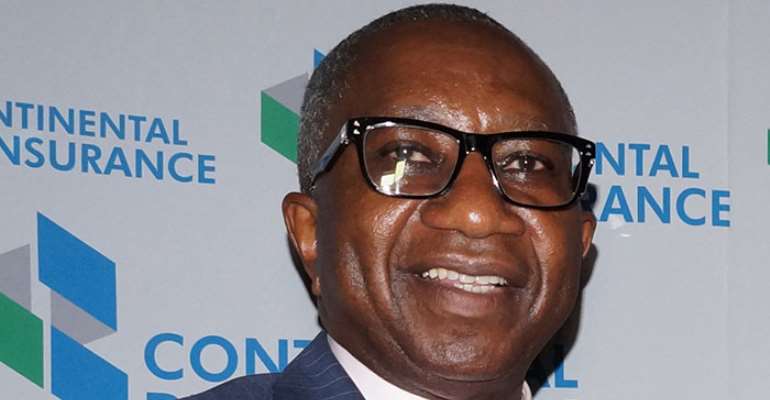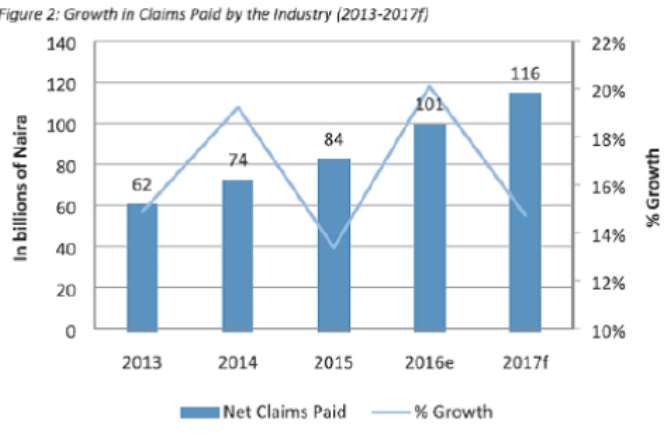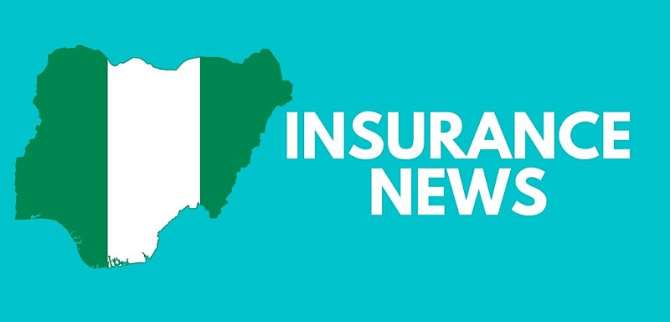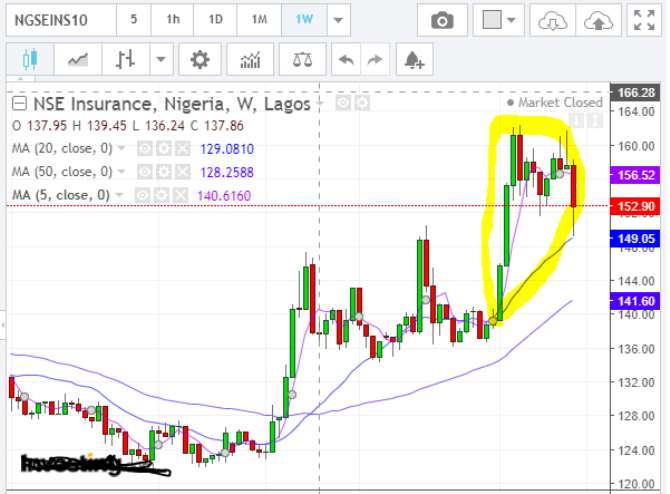Nigeria’s Reinsurance Market Moving On Despite Losses

This investigative piece unveils that reinsurance industry in Nigeria loses over N100 billion yearly to capital flight, yet the industry is moving on to greater heights. For instance, many of the firms are doubling their gross premium every financial year as against the previous year. Many of the firms are reiterating their commitment to rewarding mouthwatering returns to their shareholders through incessant dividend payment. They are recording progress while not ruling out that there are stiff competitions in the reinsurance sector but this has only made them to grow stronger, Odimegwu Onwumere writes
Despite loses in some quarters of the reinsurance sector in Nigeria, there is hope that the sector is weathering the storm. It was not possible to believe that the sector would be as vibrant as it has become today with news of capital flights amounting to billions recorded here or there in the sector. For example, Nigeria’s Commissioner for Insurance, Alhaji Mohammed Kari showed apprehension in Abuja, the country’s seat of power in July this year, saying that insurance industry in the country loses N100 billion yearly to capital flight. According to him, this was because there was dearth of ability to underwrite high risk especially in aviation insurance establishment. Then-again, A.M. Best, an international rating agency in February believed that large proportion high-value insurance risks worth 75 per cent and 60 per cent continued to flow into the international markets upon the Nigerian Oil and Gas Industry Content Development Act prohibiting such.
A.M Best put it this way, “Nigerian insurers lack the adequate levels of capital to support their exposures to these high-value risks. This uncertainty is enhanced by the absence of expertise and technical know-how to support the underwriting of oil and gas business. In a further attempt to increase the retention of oil and gas profits in the country, the National Insurance Commission (NAICOM) supported the Nigerian Insurance Association (NIA) establishment in January, 2015 of a new initiative, the Energy and Allied Risks Insurance Pool of Nigeria. Managed by African Reinsurance Corporation, the pool consists of 14 members, and has capacity to underwrite $4 million of oil and energy risks. The pool is expected to assist in the sharing of knowledge and expertise of insurers underwriting oil and energy business, although in reality the capacity of the pool remains very small in comparison to the scale of many of the large oil and energy risks underwritten.”
Upon the perceived struggle the industry was undergoing, some firms like WAICA Reinsurance Corporation Plc., as according to media reports of July this year, said through its Chairman, Kofi Duffuor, that it recorded a gross premium of $62.5milion in its 2017 financial year, from the $49.2 million in 2016. The Continental Reinsurance Plc. was not left out.
Through its chairman, Ajibola Ogunshola, the group reiterated (while presenting the company’s 2017 financial report during its 31st annual general meeting in Lagos) commitment to rewarding mouthwatering returns to its shareholders through incessant dividend payment. It was observed that the group’s gross premium income grew by 32 per cent from N22.4billion in 2016 to N29.6billion in 2017. As according to news report, the company which covers business from Lagos, Douala, Abidjan, Tunis, and in short around 50 countries, contributed N20.3billion of the group’s premium, representing 68 per cent, while the subsidiaries contributed N9.2billion, representing 32 per cent.
Hear Ogunshola, “47 per cent of the business came from Anglophone West Africa, 21 per cent from East Africa, 11 per cent from Southern Africa, while the remaining 21 per cent is shared between other three regions of Africa.”
Meanwhile, the group did not rule out that there were stiff competitions in the re/insurance sector but this has only made them to grow stronger. This view was contained in a statement by the Group Managing Director of Continental Re, Dr. Olufemi Oyetunji.
Hear Oyetunji, “We shall continue to make use of advanced risk management tools, prudent underwriting practices and the development of critical skills to ensure sustainability and profitability over the longer term.”
Notwithstanding, A.M. Best later expressed optimism that insurers in Nigeria were maintaining between 25 per cent and 40 per cent of the country’s oil and gas related business, as against less than five percent that was the case before 2010 legislation. In a nutshell, the National Insurance Commission (NAICOM) said it was collaborating with the Nigerian Content Development and Monitoring Board (NCDMB) to guarantee compliance with relevant provisions of the Nigeria Oil & Gas Industry Content Development Act 2010, and other laws relating to insurance.
Investigation revealed that the guideline on oil and gas insurance was issued by the Commission pursuant to the provisions of Section 50 of the Nigeria Oil & Gas Industry Content Development Act 2010, the Insurance Act 2003 and the National Insurance Commission Act 1997, for the purpose of establishing uniform set of rules, regulations and standards for contracts of insurance within the Oil & Gas industry in Nigeria. According to reports, NAICOM explained that the guideline was intended to facilitate compliance with the Nigeria Oil & Gas Industry Content Development Act 2010 as well as ensure value-added service(s) within the context of the Insurance Act 2003 and the National Insurance Commission Act 1997. Kari gave hope that NAICOM was underway to fashion how local insurance firms do their business in order to foster them control insurance business in the country.
Gainers and losers
There were factors that had culminated to the losses that the reinsurance market had experienced in Nigeria.
Analysts clamoured that the world watched with baked breath when six banks ended red as against three in the green category this year. They said that Continental Reinsurance Plc in April led other stocks to drag Nigerian Stock Exchange (NSE) and All Share Index (ASI) (commonly coined as NSEASI) 0.12% lower.
Experts added that the banking sector was most hit by the move which took place precisely on April 23 and NSEASI shed 50.96 points that day, rounding up at 40,763.93 points, which is 0.12% below the previous 40,814.89 points.
According to news reports, “Trading activities slowed down on the first trading day of the week leaving most of the major bank’s stocks in the decliners’ zone, with loss in Continental Reinsurance and Flourmills playing a major force to drag the market to a negative close.”
But early September, the media reported that Consolidated Hallmark Insurance led 17 other gainers despite market decline of 0.03%. Being one on the gainers chart, Consolidated Hallmark Insurance led other percentage gainers closing 10.00% above the previous close of N0.30 to settle at N0.33.
AIICO Insurance grew 9.76%; Continental Reinsurance and NPF Microfinance Bank gained 9.49% and 8.97% of their share prices ahead of other stocks on the gainers’ chart.
In the same vein, checks revealed that Q2 2018, Continental Reinsurance Plc. had confirmed its growth momentum reporting a gross earning N19.3billion which was 27% higher than N15.2billion reported in same period 2017.
Negative Reserves
It had been ups and downs experience in the insurance sector and stakeholders believed that the industry needed swift attention due to negative reserves that were recorded in a report, quarter of the year.
Indicating crisis, there were twenty nine insurance companies that had negative reserves. This was disclosed in a report by the Nigerian Insurers Association (NIA).
It was observed in 2016 Nigeria Insurance Digest, as according to NIA, that N93.15 billion were posted in 2016 as negative reserves. This was even as the report went further to state that 15 Non Life operators posted N51.79 billion, while 14 Life operators posted N41.36 billion.
Not pleased with the development, the Managing Director Lancelot Ventures Limited, Adebayo Adeleke, who is also regarded as a well-known member of Independent Shareholders Association of Nigeria (ISAN), frowned that 29 firms represented half of numbers of firms in the industry and if they had such negative reserves challenge, it meant the industry was heading to the rocks.
Adeleke’s definition of negative reserves was that it showed shareholders’ funds had gone down, indicating that firms were not smiling to banks. He thoroughly advised that NAICOM should beam its light on how firms operate and where any is found wanton; it should be encouraged to merge with strong firms before a fall.
Geared towards reinvigorating the industry, checks revealed that NAICOM wrote what was called administrative letter to insurance companies that were undergoing financial challenges.
A commentator noted on that, “Late last year, it was reported that 12 insurance companies urgently need to shore up their shareholders’ funds in 2018 to enable them play comfortably well in the highly competitive underwriting business.
“According to 2016 Insurance industry financial reports published by NAICOM, these firms are operating below or slightly above the industry’s statutory shareholders’ funds. In the last insurance industry recapitalization, Non-Life insurance firms were mandated to raise their shareholders’ fund to N3 billion; Life Insurance operators, N2 billion, Composite N5 billion and Reinsurance N10 billion.”
Fraudulent claims
Market watchers were stunned in April when the Chairman, Nigerian Insurers Association (NIA), Eddie Efekoha, disclosed in Lagos that insurance companies had detected what they characterised by “fraudulent claims through market cohesion and improved intercompany relationship.”
Hear Efekoha, “It is equally important to inform you that we are witnessing more market cohesion and improved intercompany relationship. Companies now share information on new businesses and claims. This has resulted in the discovery of fraudulent claims in the market, especially in the area of motor insurance. The Association appreciates members for this improved relationship and urges greater collaboration in the market.”
This might be one of the reasons Continental Reinsurance Plc. organised its fifth Chief Executive Officers (CEOs) on reinsurance April this year dubbed “Insurance and adaptation in the face of technological change in Africa” in Swakopmund, Namibia, where no fewer than 100 insurance chief executives and regulators were in attendance.
Speaking at the event, Dr. Oyetunji noted that for the industry to fully optimize, players need to adopt technology in all processes to help drive penetration. Historically, the insurance industry has been slow to adopt technology compared with other sectors and this is stifling its growth.
It’s hoped that stakeholders would hearken to the statement to make the industry hitch-free in Nigeria and by extension, across Africa.
Odimegwu Onwumere is a Poet, Writer and Media Consultant based in Rivers State. Email: [email protected]



